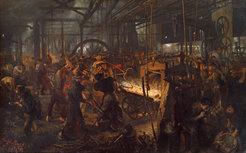Law, capitalism, and democracy: political experience and the emergence of an interdisciplinary Critical Theory of Law in the Weimar Republic
Research Project

The question of the compatibility of capitalism and democracy - denied by thinkers with as radically opposing convictions as Mill and Marx - acquired a new sense of urgency in the Weimar Republic. The attempt to adequately comprehend the Weimarian legal order, its possibilities and limits in light of this unprecedented constellation of law, capitalism, and democracy by drawing from the Marxist tradition was at the center of writings by Franz Neumann, Ernst Fraenkel, and Otto Kahn-Freund - then a group of young social democrat jurists, organized around the figure of Hugo Sinzheimer - from the period.
This project seeks to understand the specific form taken by these attempts: the constitution of an interdisciplinary and critical theory of law, written from the perspective of the labor movement. My starting hypothesis is that its specificity, emergence, and development can only be properly grasped if it is understood as the product of the convergent responses offered by Kahn-Freund, Neumann, and Fraenkel to a complex of problems - relating to the fate of the labor movement, the development of capitalism, and the promises and perils of democracy - arising from a shared understanding of the historical-political experience. Reconstructing the works of Fraenkel, Kahn-Freund, and Neumann as a continuous attempt to answer these problems allows me to present the development of the theory as a process of historical-political self-reflection. In so doing, I hope to not only shed light on a body of works that so far has not been adequately explored but also contribute to the uncovering of the traces of a legal-theoretical tradition in the making, which was violently aborted by the rise of Nazism.
